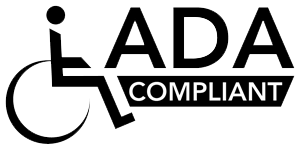Nutrition Basics: Fats
Your body needs some fat to function properly. Fat:
• Is a source of energy
• Is used by your body to make substances it needs
• Helps your body absorb certain vitamins from food
But not all fats are the same. Some are better for your health than others. To help prevent heart disease and stroke, most of the fats you eat should be monounsaturated and polyunsaturated fats.
Foods high in monounsaturated fats include:
• Olive oil
• Peanut oil
• Canola oil
• Avocados
• Most nuts
Foods high in polyunsaturated fats include:
• Safflower oil
• Corn oil
• Sunflower oil
• Soybean oil
• Cottonseed oil
Omega-3 fatty acids are a type of polyunsaturated fat that appear to reduce your risk of heart disease. Good sources of omega-3s are fatty fish. These include salmon, trout, herring, mackerel, anchovies, and sardines. You can also get omega-3s from plant sources. These include ground flaxseed (linseed), flaxseed oil, and walnuts. Small amounts are also found in soybean and canola oils.
Less healthy kinds of fats are saturated and trans fats. They can increase your risk of heart disease by causing the buildup of a fatty substance in the arteries carrying oxygen-rich blood to your heart. When this happens, your heart does not get all the blood it needs to work properly. The result can be chest pain or a heart attack. These fats can also increase your risk of stroke by causing the buildup of the same fatty substance in arteries carrying blood to your brain. Research also suggests that eating lots of trans fats may increase your risk of breast cancer.
Foods high in saturated fats include:
• Red meat (beef, pork, lamb)
• Poultry
• Butter
• Whole milk and whole milk products
• Coconut oil
• Palm oil
Trans fats are found in foods made with hydrogenated and partially hydrogenated oils. Look on the ingredients list on the food package to see if the food contains these oils. You are likely to find them in commercial baked goods, such as crackers, cookies, and cakes. Trans fats are also found in fried foods, such as doughnuts and French fries. Stick or hard margarine and shortening are also high in trans fats.
As with saturated and trans fats, eating too much cholesterol can raise your risk of heart disease and stroke. Cholesterol is a fat-like substance found in animal products, such as:
• Red meat
• Poultry
• Seafood
• Egg yolks
• Milk and milk products
• Lard
• Butter
Although monounsaturated and polyunsaturated fats are better for your health than saturated and trans fats, eating large amounts of any fat can cause weight gain. You should eat fats in moderation. And make sure that fatty foods don’t replace more nutritious foods, such as fruit, vegetables, and whole grains.



